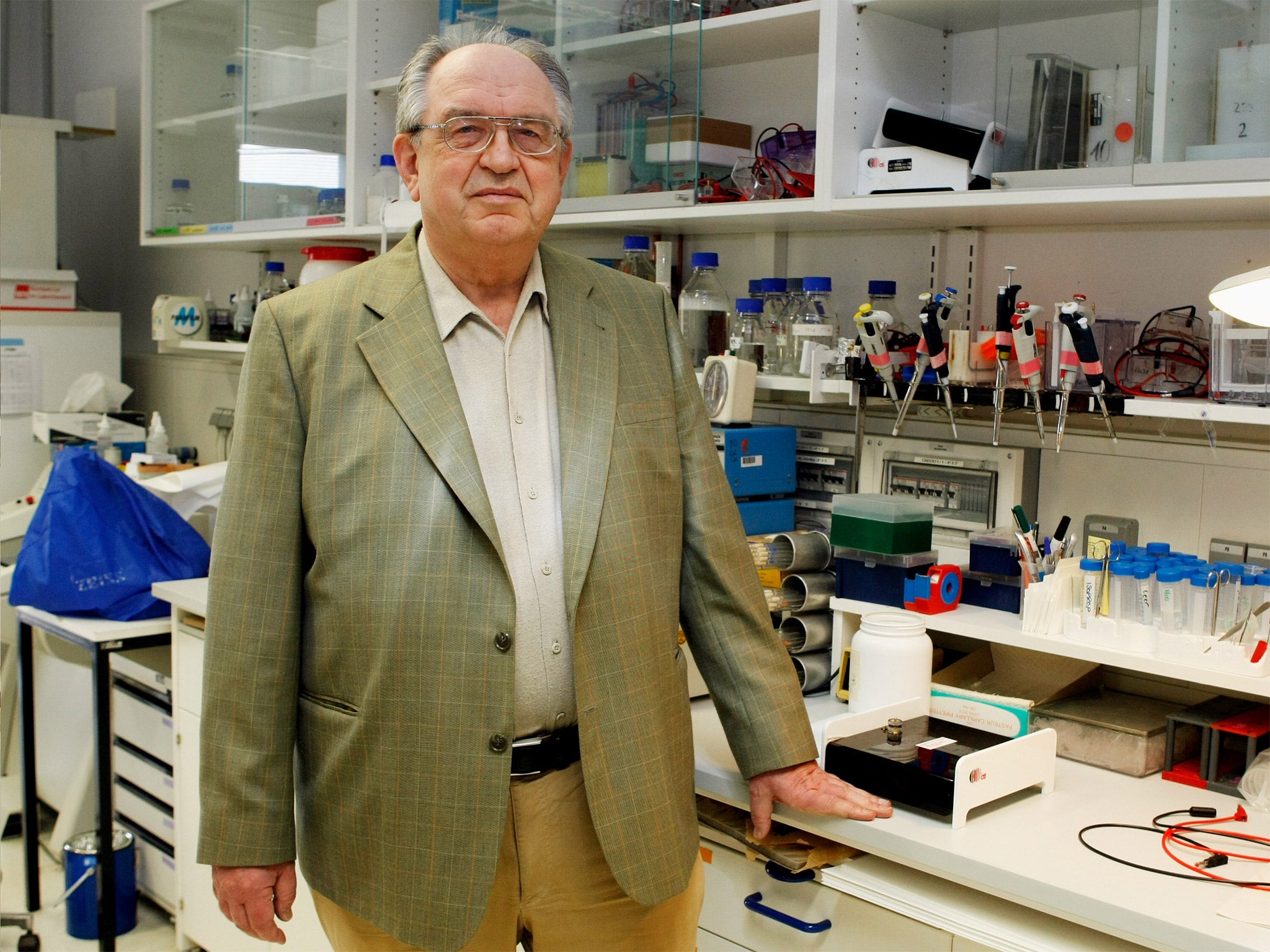Russia doping crisis: East Germany doping expert worried about long-term health risks of drug abuse
Werner Franke warns against ignoring effects on athletes while Russians condemn UK testing as ‘worse than ours’

The key whistle-blower in uncovering East Germany’s state-sponsored doping programme of the 1970s and 1980s has warned that Britain could be caught up in the controversy centred on Russia and also predicted a human health “catastrophe” because of the abuse of drugs.
Werner Franke and his wife Brigitte Berendonk, a former West German Olympic discus thrower, helped to lift the lid on systemic doping in East Germany after uncovering thousands of pages of notes detailing the widespread doping programme in a hospital in the east of the country.
The Russian Sports Minister, Vitaly Mutko, has claimed that the failure of the London 2012 testers to uncover Russian doping showed “your system is zero and even worse than ours”. But while Franke disagreed, saying, “The doping system is better in the UK than in other countries,” he added a warning: “But it’s not perfect. Dopers in Britain know what they can do in training camps, for example.
“Take the drug Andriol [a type of testosterone] by way of an example. That can be ingested by an athlete at 10 at night and be out of the system by eight the following morning, and that’s not the only drug like that.
“And we need to remember that Russia is not the only villain here. This is a problem in the UK, Germany and elsewhere.”
Franke and his wife penned a book called Doping: From Research to Deceit, which was seen as a key starting point in the lengthy process that led to the current unified German government offering €10.5m (£7.1m) in compensation to the victims of the last major state-run doping regime.
Franke regularly meets those former athletes, whose long-term side-effects from the drugs they took have ranged from cancers to death from cardiomyopathy (when the walls of the heart chambers have become stretched, thickened or stiff, affecting the heart’s ability to pump blood around the body). There is also and the case of the former shot-putter Heidi Kreiger, who was left with such masculine traits by her doping regimen that she underwent sex reassignment surgery and is now Andreas.
And Franke, a professor of cell and molecular biology at the German Cancer Research Centre in Heidelberg, warned of another bout of serious illness affecting the athletes caught up in the Russian doping furore laid bare in Geneva on Monday by Dick Pound and his fellow members of the World Anti-Doping Agency’s independent commission.
“For me this is the biggest thing to come out of the commission report by some way,” Franke. “Much, much bigger than anything else. This is disastrous. The full human consequences will not be felt for decades. I cannot predict the future but this could be a human catastrophe.
“This is not just something like EPO, blood boosting, we are talking about steroids and hormones and the virilisation of young female athletes in particular. The danger of health risks and damage is huge.
“Not everyone sees this but, with my past, I see this from a different angle.”
Franke says he knows of the cases of former athletes who died in their forties as a direct result of the drugs they took – in East Germany it was the notorious “blue pill”, the steroid Oral-Turinabol – and he raised fears that similar cases could follow.
“There are tumours we know of that are induced by hormones, we’ve seen evidence of that,” he said. “In some cases this leads to breast cancer in athletes and other forms of cancer, and there is also evidence of this leading to cardiomyopathy.
“The evidence we have from the [Wada] commission is that this is not just EPO. For me, this is abuse of science. Doctors are meant to be there for the welfare of people. It will cause a lot of problems for people.”
The list of Russian athletes accused of doping grows ever longer, with the independent commission report recommending life bans for another quintet of Russian middle-distance runners: Maria Savinova, the 800m Olympic champion in London 2012, the bronze medallist in that race Ekaterina Poistogova, Anastasiya Bazdyreva, Kristina Ugarova and Tatjana Myazina.
While criticism has been levelled at athletes for doping, Franke said he felt they probably had no choice but to do as they were told. “They would not have been able to compete at international events,” he added. “They had no choice. It was the same in the GDR [East Germany].
“There’s no informed consent here for me. Governments who have allowed this, and others, this is criminal but they are not the ones that have to carry the effects for the rest of their lives.
“It’s the same damaging path we’ve seen from previous decades with the GDR. What this means will be terrible for them. For me, the tone in the media and the newspapers is wrong. For me, I think, ‘Poor athletes, these will be the ones suffering from this’.”
Join our commenting forum
Join thought-provoking conversations, follow other Independent readers and see their replies
Comments